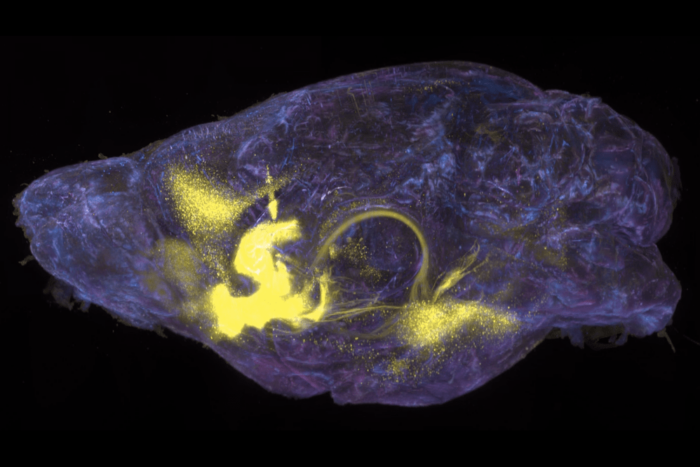Erich Jarvis receives grant from W.M. Keck foundation
Erich Jarvis, head of the Laboratory of Neurogenetics of Language, recently won a competitive grant from the W.M. Keck foundation. Typically awarded to high-risk research agendas that don’t receive funding from government agencies, the grant will provide the Jarvis lab with one million dollars to expand their investigation of the neural circuits and genes involved in speech.
Jarvis studies humans and songbirds—two species that have the rare ability to learn and produce new sounds. Previously, his lab established that, in brain regions devoted to the production of learned sounds, songbirds and humans exhibit similar gene-regulation patterns. “You don’t find these patterns in the brains of chickens, pigeons, mice, or nonhuman primates,” says Jarvis.
Still, Jarvis’ lab has shown that mice have rudimentary connections in brain areas normally devoted to sound production learning, and that they can produce very basic modifications to vocalizations—suggesting that the ability to produce learned sound may not be an all-or-none feature. “I think this ability exists on a continuum,” he says, “and mice may be part of the way along it.”
With funding from the grant, Jarvis will explore whether mice can be nudged a bit further along this continuum. “We know which genes are involved in sound production,” he says. “So we plan to manipulate those genes in a group of mice to make them a little more like songbirds and humans.”
Though this research likely won’t yield affable talking mice a la Cinderella, it may lead to insights crucial to understanding and treating human speech disorders. “The idea is something that I’ve been thinking about for a while,” says Jarvis, “but without this grant, I would not be able to make it happen.”


